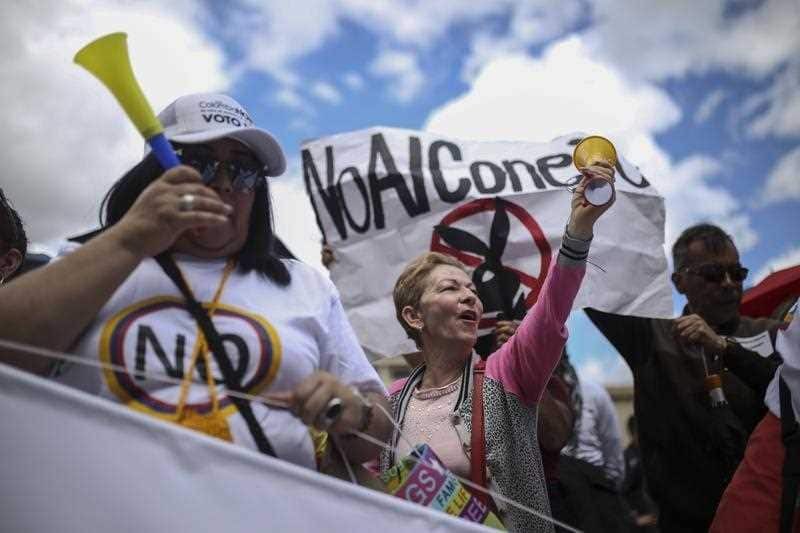The agreement was approved in the lower house on Wednesday by 130-0, a day after the Senate ratified it 75-0.
Lawmakers from Uribe's Democratic Centre party left the floors of both houses in protest just before voting began.
The ratification - and signing last week - begins a six-month countdown for the 7,000-strong FARC, which started as a rebellion fighting rural poverty, to abandon weapons and form a political party.
President Juan Manuel Santos and rebel leader Rodrigo Londono signed the revised accord last week in a sober ceremony after the first deal was rejected in a national plebiscite.
Santos, who won the Nobel Peace Prize in October for his peace efforts, wants to get the deal implemented as quickly as possible to maintain a fragile ceasefire.
Uribe's supporters argued the deal offered too many concessions to the Revolutionary Armed Forces of Colombia, or FARC, and did not serve as a deterrent for other groups involved in crime.
"Let's not forget what we are doing today, we're trying to end more than 50 years of war," government negotiator Sergio Jaramillo said.

The new agreement to end Latin America's longest insurgency was put together in just over a month after the original pact - which allowed the rebels to hold public office and skip jail - was narrowly and unexpectedly defeated in an October 2 referendum.

